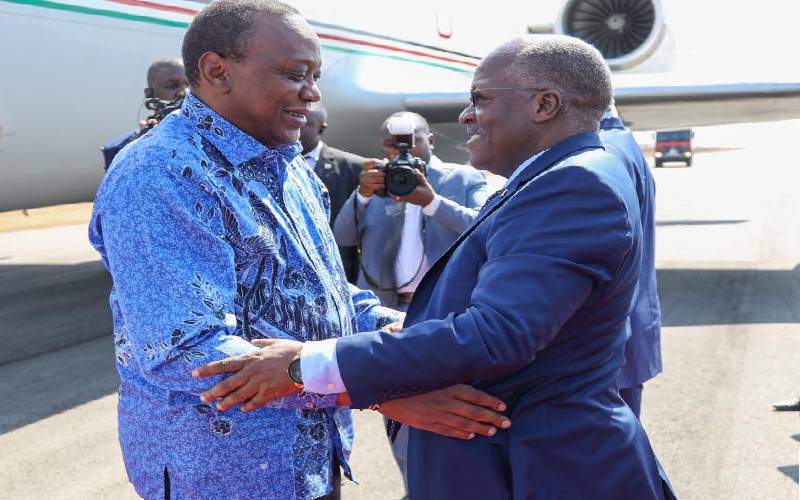×
The Standard e-Paper
Join Thousands Daily

President Uhuru Kenya and his Tanzanian counterpart John Magufuli have agreed on four key deals aimed at reviving flagging bilateral ties between the two countries.
The two leaders resolved to revamp the Lake Victoria Ferry Services, establish a natural gas trade arrangement and vowed to deal firmly with insecurity as well as enhancing cross-border investments.